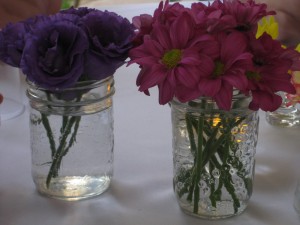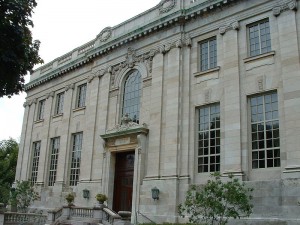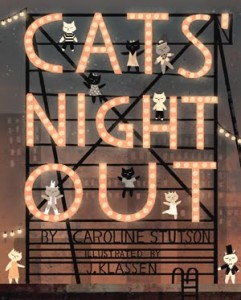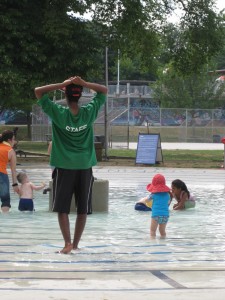August 6, 2011
When I was a compulsive parenting expert…
 Over at my friend Nathalie‘s parenting blog 4 Mothers, I’ve written a guest post about my career as a compulsive parenting expert:
Over at my friend Nathalie‘s parenting blog 4 Mothers, I’ve written a guest post about my career as a compulsive parenting expert:
‘I told them, “And be prepared to feel like a cow. Be prepared to cry, and cry. It’s going to be awful, I’m not going to lie to you. But you’re going to get through it, I promise. I sit here feeding my screaming infant and lecturing you as living-proof that one day everything is going to be okay. Oh, and by the way, I’ve gone through your registry and crossed off all the stuff you don’t need, and made a note about everything you’ve missed.”
It was a compulsion, I will admit, the way I insisted on hunting down women in their third trimesters of pregnancy, and horrifying them with stories of how terrible their lives were about to become. But really, I wasn’t responsible for my behaviour in their presence. The very sight of their burgeoning bellies, their innocent bliss, how they kept talking about looking forward to getting the baby out so they could finally get a good night’s sleep again—it would fill me with overwhelming dread, and I’d start displaying symptoms of PTSD.’
You can read the rest here.
August 6, 2011
What else is there to do in Paradise?
“…because what is there to do/ in Paradise but loaf beneath a tree,/and dream of other worlds?” –Bruce Taylor, “Little Animals” (from QuArc).
 We had the most delightful vacation, mainly because we spent most of it reading, reading, reading. Also because Harriet got to roam free like a storybook child, the weather was wonderful, we ate pie almost every day, no laundry was done for a week, the lake was warm and gorgeous, the company was fun, Harriet fell back in love with her summer friend from last year, and because the beer was always cold. We’re not unhappy to be home, however, because here we can drink from the tap, there isn’t sand in the bed, we can go walking not along the side of a highway, and we might end up eating something for dinner that isn’t a frozen burger. It was a perfect week, and isn’t doing seven days of nothing exhausting? So we’re going to need another day or two to recover, and will probably have to go out for dinner tonight because no one is yet up to cooking. Not even a frozen burger.
We had the most delightful vacation, mainly because we spent most of it reading, reading, reading. Also because Harriet got to roam free like a storybook child, the weather was wonderful, we ate pie almost every day, no laundry was done for a week, the lake was warm and gorgeous, the company was fun, Harriet fell back in love with her summer friend from last year, and because the beer was always cold. We’re not unhappy to be home, however, because here we can drink from the tap, there isn’t sand in the bed, we can go walking not along the side of a highway, and we might end up eating something for dinner that isn’t a frozen burger. It was a perfect week, and isn’t doing seven days of nothing exhausting? So we’re going to need another day or two to recover, and will probably have to go out for dinner tonight because no one is yet up to cooking. Not even a frozen burger.
We weren’t as stranded book-wise as last year, because we’d brought lots of books to read. I started with Jennifer Egan’s A Visit from the Goon Squad, which I polished off in a day and then urged into the hands of my husband who read it as happily. I was grateful for all the hype it had got, because I probably wouldn’t have read it otherwise, and the read was splendid. I’ll be definitely reading her back catalogue. Then I moved onto Gertrude Bell’s biography Gertrude Bell: Queen of the Desert, Shaper of Nations, which has been sitting on my shelf for ages, and I’ve wanted to read to learn more about Bell and the history of the Middle East. Bell was your standard mountain-climbing, desert-mapping, Sheikh charming Victorian lady. I can’t say that biography itself was exceptional (I think I’ve been spoiled from having read Victoria Glendinning so recently) but Bell was so exceptional, it would be impossible for her story not to be interesting.
And then I read Anne Perdue’s I’m a Registered Nurse Not a Whore, which blew me away and merits its own book review even though I  read it on vacation. I’ve met Anne a few times (and I loved her guest post at Canadian Bookshelf), but I wasn’t prepared for how amazing this book was. I’d like to describe it as Jessica Westhead meets John Cheever, and also, what to read after Alexander MacLeod’s Light Lifting. One of the very best books I’ve read this year, and I’m so thrilled to have encountered it, and to be able to recommend it to you.
read it on vacation. I’ve met Anne a few times (and I loved her guest post at Canadian Bookshelf), but I wasn’t prepared for how amazing this book was. I’d like to describe it as Jessica Westhead meets John Cheever, and also, what to read after Alexander MacLeod’s Light Lifting. One of the very best books I’ve read this year, and I’m so thrilled to have encountered it, and to be able to recommend it to you.
I also read through my giant stack of periodicals, which had arrived after the mail strike. The stand-out piece of the bunch was Kathleen Jamie’s “In the West Highlands..” (subscription required) about nature writing via the book Ring of Bright Water (which I know from Alissa York’s Fauna). About how stories of a pet seal living in one’s bathtub lost their appeal with what readers learned from Rachel Carson’s Silent Spring, which didn’t necessarily take on the seal-living-in-bathtub phenomenon, but taught us that we are not nature’s masters after all. “To care about animals now, we must do it from afar.”
 Which was a nice way to transition to the absolutely superb QuArc Issue, a joint venture by The New Quarterly and Arc Poetry, which celebrates the intersections of literature and science. And has Rachel Carson poems! Margaret Atwood juvenalia. An interview with Alice Munro! I’m halfway through the Arc side, and I’m finding it very difficult to put down. A bit unbelievable to have so much good stuff inside one (gorgeous) package.
Which was a nice way to transition to the absolutely superb QuArc Issue, a joint venture by The New Quarterly and Arc Poetry, which celebrates the intersections of literature and science. And has Rachel Carson poems! Margaret Atwood juvenalia. An interview with Alice Munro! I’m halfway through the Arc side, and I’m finding it very difficult to put down. A bit unbelievable to have so much good stuff inside one (gorgeous) package.
Transition also to Wallce Stegner’s Angle of Repose, which I bought at Bob Burns’ Books in Fenelon Falls (a visit to which I’ve been  looking forward to for a year). I’m reading this book now and aren’t in love yet, but I am firmly in love with Stegner and I like that it’s the second Pulitzer Prize-winner I’ve read this week. Also at Bob’s, Harriet got Wacky Wednesday, and Stuart got Terry Prachett and Ian Rankin.
looking forward to for a year). I’m reading this book now and aren’t in love yet, but I am firmly in love with Stegner and I like that it’s the second Pulitzer Prize-winner I’ve read this week. Also at Bob’s, Harriet got Wacky Wednesday, and Stuart got Terry Prachett and Ian Rankin.
 The other bookish thing that’s gone on is that I made a cottage library over the past year. Made out of review copies I didn’t have room to keep, and also books I’ve scavaged from boxes on curbs. Usually I scavenge less, and donate my extra books to the library or a booksale, but I enjoyed putting the cottage library together instead, which includes some great books and also some trashy ones, which any cottage library requires. I took a picture of one of the shelves, which is only a bit overwhelmed by the mounted fish above it.
The other bookish thing that’s gone on is that I made a cottage library over the past year. Made out of review copies I didn’t have room to keep, and also books I’ve scavaged from boxes on curbs. Usually I scavenge less, and donate my extra books to the library or a booksale, but I enjoyed putting the cottage library together instead, which includes some great books and also some trashy ones, which any cottage library requires. I took a picture of one of the shelves, which is only a bit overwhelmed by the mounted fish above it.
July 29, 2011
Cottagier climes
 Pickle Me This is on vacation for the next week or so. We’re escaping to cottagier climes, and looking forward to hitting the Foodland tomorrow, as well as the beer store. I am taking A Visit from the Goon Squad, I’m a Registered Nurse Not a Whore and the rather hefty biography Gertrude Bell: Queen of the Desert, Shaper of Nations.
Pickle Me This is on vacation for the next week or so. We’re escaping to cottagier climes, and looking forward to hitting the Foodland tomorrow, as well as the beer store. I am taking A Visit from the Goon Squad, I’m a Registered Nurse Not a Whore and the rather hefty biography Gertrude Bell: Queen of the Desert, Shaper of Nations.
July 29, 2011
Best Book from this week's library haul: If I Were a Lion by Sarah Weeks and Heather Solomon
 Our best book this week was If I Were a Lion by Sarah Weeks and illustrated by Heather M. Solomon. It’s the story of a little girl (who look like a kewpie doll. Some people find such illustrations creepy, but I love their weirdness) who has been making some trouble. She never owns up to exactly what kind of trouble, but there is evidence of scribbling on the wall and cereal poured all over the kitchen floor. Her mother has just called her wild, and banished her to the Time-Out chair, and though the girl will admit that the Time-Out is probably necessary, she takes serious offence to “wild” slur. Because she doesn’t roar, she doesn’t have scales or feathers, she doesn’t swing through the trees etc. etc. And she proceeds to go through a catalogue of amazing wildness and imagines the animals she speaks of wreaking havoc on the house. She’s not ferocious, she says, just precocious. When her mother finally calms down she’ll see, “that the opposite of wild is me.”
Our best book this week was If I Were a Lion by Sarah Weeks and illustrated by Heather M. Solomon. It’s the story of a little girl (who look like a kewpie doll. Some people find such illustrations creepy, but I love their weirdness) who has been making some trouble. She never owns up to exactly what kind of trouble, but there is evidence of scribbling on the wall and cereal poured all over the kitchen floor. Her mother has just called her wild, and banished her to the Time-Out chair, and though the girl will admit that the Time-Out is probably necessary, she takes serious offence to “wild” slur. Because she doesn’t roar, she doesn’t have scales or feathers, she doesn’t swing through the trees etc. etc. And she proceeds to go through a catalogue of amazing wildness and imagines the animals she speaks of wreaking havoc on the house. She’s not ferocious, she says, just precocious. When her mother finally calms down she’ll see, “that the opposite of wild is me.”
Naturally, it’s written in verse. Most of our Best Books are. It also taught Harriet the word “opposite”, which is the most abstract term she’s comprehended yet, and I’m glad she’s smart enough to understand the opposite of coffee is tea.
July 28, 2011
The Astral by Kate Christensen
 Kate Christensen’s Trouble was the first novel I reviewed on my blog after Harriet was born, and the novel was disappointing. (Less disappointing was the review I wrote–I can’t quite believe how lucid it reads. Perhaps I secretly paid someone to write it while I was busy lying on the carpet sobbing.) Being a novel by Kate Christensen, however, Trouble was still well worth the read and better than most of the other books out there. So you can imagine how much it thrills me to declare that Christensen’s latest, The Astral, is her best book yet, and the finest book I’ve read in ages.
Kate Christensen’s Trouble was the first novel I reviewed on my blog after Harriet was born, and the novel was disappointing. (Less disappointing was the review I wrote–I can’t quite believe how lucid it reads. Perhaps I secretly paid someone to write it while I was busy lying on the carpet sobbing.) Being a novel by Kate Christensen, however, Trouble was still well worth the read and better than most of the other books out there. So you can imagine how much it thrills me to declare that Christensen’s latest, The Astral, is her best book yet, and the finest book I’ve read in ages.
The Astral is the story of a man at the end of his marriage: Luz, Harry Quirk’s wife of thirty years, has just thrown them out of their home in The Astral, an apartment (which actually exists!) in Brooklyn’s Greenpoint neighbourhood. She’s come across his latest manuscript of poems, love sonnets, and she’s convinced he’s written them for another woman. Refusing to indulge his insistance that the poems are the product of his imagination only, she destroys the manuscript and banishes Harry from their marital home. Harry finds refuge with his good friend Marion, a recent widow, which only serves to anger Luz further because she’s convinced he’s been sleeping with Marion for years. Though he hasn’t been, not for years or for ever. Harry had had one indiscretion twelve years ago, but other than that, he’s been an pointedly loyal husband.
The Astral follows the months after Harry’s banishment, its effect on his children, and he and Luz’s wider group of friends. As with most of Christensen’s work, the narrative is fixed solidly within the perspective of an unlikeable protagonist, though she invests Harry with a certain charm– I think she tends to go easier on her men than her women. Charm meaning that he’s convincing though, almost, but there are certain moments when it becomes clear that he’s wholely devoid of self-knowledge. A line like, “I’d never had a drivers’ license myself, but I knew bad driving when I see it.” But he brings you around, Harry, and it’s not such a bad place, being in his head. Everything he does is usually justifiable, he knows everybody else’s problems. and then there’s the incredible scene when he storms his wife’s therapist’s office and threatens to maim her, then she proceeds to reduce him to a psychological pulp using his own tricks (but better). Suddenly, it’s not clear what is what anymore.
And what is what is never quite resolved. Like Lionel Shriver at her best, Christensen writes a veritable keleidoscope of relative perspectives, and the effect is as unsure and perilous as reality. Like Shriver too, Christensen is hilarious, though her caustic is far less caustic and her work is more palatable. The two writers are similar also in that their novels are driven more by ideas than characters (or even plot) so that we can see the seams sometimes, the work of an author trying too hard to make her people go where she wants them to go. We also get some woodenness, some terrible dialogue– Harry answers a question regarding his son’s wellbeing with, “Karina and I were just out there. He’s immersed in this cult, he’s marrying the leader, and they think he’s the Messiah.” But there is a self-awareness there, one gets the sense that Christensen is winking. At one point during a too-earnest conversation, somebody asks, “Who’s writing this dialogue?”
And the answer is Kate Christensen, who clings to metaphor as much her protagonist does. Marriage is poetry: “I believe in rhyme and rhythm. But my adherence to form is loony. I make it much harder for myself than it has to be. I follow arcane rules that went out of business a hundred years ago.” Marriage is also a kind of cult like the one that has sucked in Harry’s son, and though this plotline has the air of the ridiculous, it’s never exploited and works within the bigger picture. Everything in the book is really working for a higher purpose, which makes the pay-off worthwhile because you get this book in the end. A story of the disparate selves within one man and within one marriage, and the reconciliation of the former that comes when the marriage is finally dissolved.
(If you’re thinking you might be interested in this book, read Kate Christensen’s Book Notes at Largehearted Boy, and then there will be no doubt left in your mind.)
July 27, 2011
On library romance
 In the past two days, it has occurred to me that it’s not uncommon for women to imagine library jobs as gateways to romance. Julia did, and so did I, though neither of us got exactly what we were looking for. Particularly since what I’d been looking for exactly was Love Story‘s Oliver Barrett IV (who, incidentally, didn’t look like Ryan O’Neal, since I’d read the book before seeing the movie. He also didn’t look like Al Gore). I wanted the son of a millionaire, the Harvard jock with a sports car who’d see past my glasses and my Italian working class origins, even though I didn’t have either.
In the past two days, it has occurred to me that it’s not uncommon for women to imagine library jobs as gateways to romance. Julia did, and so did I, though neither of us got exactly what we were looking for. Particularly since what I’d been looking for exactly was Love Story‘s Oliver Barrett IV (who, incidentally, didn’t look like Ryan O’Neal, since I’d read the book before seeing the movie. He also didn’t look like Al Gore). I wanted the son of a millionaire, the Harvard jock with a sports car who’d see past my glasses and my Italian working class origins, even though I didn’t have either.
Needless to say, I didn’t meet him, though I did eventually get glasses, which I hoped would help, but they didn’t. Which was not to say that my career was not romantic– plenty of nights perched at the circulation desk, I’d await the arrival through the library’s revolving door of whoever it was I was happened to be in love with at the time. I remember many flirtatatious chats to the steady rhythm of the date-stamp. There really were two incidents during which I was kissing boys in the stacks when I should have been shelving, which is the nerdy girl’s erotic fantasy. And if none of this sounds particularly romantic to you, I assure you that it was, or at least it was romantic as my life ever got around the turn of the century.
You can forgive me for being deluded though. I understand the world through literature, and books tend to present libraries as most romantic places. In Love Story, it’s the Radcliffe Library where Jenny Cavilleri first encounters her unlikely future-husband Oliver Barrett IV (“I’m not talking legality, Preppie, I’m talking ethics. You guys have five million books. We have a few lousy thousand.”) and he invites her out for coffee, purportedly to get his book. In Martha Baillie’s The Incident Report, Miriam meets Janko Prijatelj in the park on her lunch break from the Allan Gardens Library, but it is through the language and structure of library bureaucracy that we become privy to the details of their romance.
And then there’s the erotic novel Overdue For Pleasure, about a simple librarian who discovers her wild side . What about Rose in Alice Munro’s Who Do You Think You Are? who is molested in the stacks during her library job, and saved by the man who will become her husband? (Though admittedly, this plot line is less than romantic.) AS Byatt’s Possession unfolds in a library, the English kind, which are the very best. And then there’s every Barbara Pym book ever written (except the ones that are tales of village life) in which dusty love is encountered across hushed study tables between individuals the rest of the world has forgotten.
Update: Amy Lavender Harris’ excellent blog post informs me about “Rosemary Aubert’s Harlequin romance Firebrand (1985) in which a City Hall librarian has a torrid affair with the City’s charismatic, handsome, left-leaning mayor. It need not be said, of course, that Aubert’s Mayor does not close any branches.”
July 26, 2011
Wild Libraries I have known: The John Hay Library
 The lovely Julia Zarankin goes looking for love in the stacks of Brown University’s John Hay Library, and finds it!
The lovely Julia Zarankin goes looking for love in the stacks of Brown University’s John Hay Library, and finds it!
I walked into the John Hay Library without knowing anything about it. I was a freshman in college, desperately searching for a part time job and convinced that a library job would increase my likelihood of finding a boyfriend (which high school had not afforded). I imagined scenarios where the elusive boy and I would meet at the circulation desk, debate philosophical problems and run off into the stacks together to kiss passionately (preferably next to collected works by Flaubert, on whom I had a slight, inexplicable crush). And finally, life would be worth living.
I ended up getting a job at Brown University’s Rare Book library – the John Hay Library – where I was one of three female work-study students and worked with a group of middle-aged female librarians. The boyfriend I had imagined meeting was nowhere to be found.
Instead, I discovered books and fell in love with their smell, their feel, their inscriptions, and their histories. I had always been a reader, but before working at the Hay, I never stopped to consider the book as a physical and historical object. Books had merely been containers of information; now they were transforming into living beings. (I did end up meeting that elusive boyfriend, but it didn’t happen in a library, and in the end he didn’t really make life worth living, not to mention that our philosophical discussions never quite got off the ground; the whole thing was slightly underwhelming, but I never would have believed that as an 18-year-old.)
I worked at the reception desk at the John Hay Library for seven hours every Monday and Friday of my freshman year. My job should have been boring and repetitive, but wasn’t: patrons arrived, I helped them fill out request forms, escorted them into the (locked!) reading room, ensured that they had nothing but a pencil and notebook in their possession, entered the request form information into a meticulous log, asked permission to search for the requested book in the stacks, returned with said book, delivered it to the patron and repeated the process.
Sometimes, patrons came to me with research questions and I loved the job for the random conversations and chance encounters. Once, I helped a patron amass bibliographical citations for an art project about vomit in 18th century medical literature. She was a RISD student (the art school down the street) and wore a green boa wrapped around her neck. She returned months later, to thank me for my help, but I never did see her art project. The library also housed a remarkable American literature collection, a medical history collection (hence the vomit-book quest), a military collection replete with toy soldiers, an occult collection, along with all sorts of magician-paraphernalia from the ages, and a Playboy collection, among other things.
I fell in love with the library mainly for the magic I discovered in the stacks. My favorite task was emptying the returns cart and replacing all the books in their proper place. This involved taking a service elevator down into the depths of the library (most of the floors were below ground, and several degrees colder); the floors were dark, with a musty smell I quickly developed affection for, and I would walk through the stacks, turning the lights on one by one. It was there, in the Harris Collection of American Poetry and Plays that I found first editions of Arthur Miller, H.D., e.e. cummings, Wallace Stevens. I would linger an extra ten minutes among the stacks whose layout I had memorized, opening volumes of poetry, reading inscriptions, learning the cardinal points of a literary map I was only beginning to put together in my own mind.
The Hay plunged me into a world where books mattered; every detail of their existence, health and well-being was of utmost importance. Books at the Hay were alive, and I was intoxicated.
July 25, 2011
Best Book from this week's library haul: Cats' Night Out by Stutson/Klassen
 There was no sticker on the cover, so it was only just now that I learned that our Best Book from this week’s library haul was awarded the 2010 Governor General’s Award for Illustration. The book is Cats’ Night Out by Caroline Stutson and illustrated by J. Klassen, which we love for its verse: “Two cats samba, dressed in white/ on the rooftop Saturday night.” It counts up by twos to, “Twenty conga left and right/ in splashy florals, plaids and stripes”, and I am especially partial to the twelve town tabbies doing the twist. Anyway, the neighbours start complaining and the show gets shut down, but the illustrations of the nighttime cityscape are marvellous fun, it’s cats after all, and the verse has a jazzy rhythm even we like, and we hate jazz. We were happy to find this book, though we had plenty of gems this week– Harriet has discovered Corduroy and is in love, and we’re also reading Katie-Morag based on Melanie’s recommendation.
There was no sticker on the cover, so it was only just now that I learned that our Best Book from this week’s library haul was awarded the 2010 Governor General’s Award for Illustration. The book is Cats’ Night Out by Caroline Stutson and illustrated by J. Klassen, which we love for its verse: “Two cats samba, dressed in white/ on the rooftop Saturday night.” It counts up by twos to, “Twenty conga left and right/ in splashy florals, plaids and stripes”, and I am especially partial to the twelve town tabbies doing the twist. Anyway, the neighbours start complaining and the show gets shut down, but the illustrations of the nighttime cityscape are marvellous fun, it’s cats after all, and the verse has a jazzy rhythm even we like, and we hate jazz. We were happy to find this book, though we had plenty of gems this week– Harriet has discovered Corduroy and is in love, and we’re also reading Katie-Morag based on Melanie’s recommendation.
July 25, 2011
Alas
 I was expecting to have a brand new book review for your reading pleasure today, except that in the space of 36 hours this weekend, I gave up on three (3) books. One wasn’t a bad book, but it just wasn’t interesting for me, and you’d wonder why I was reviewing it; the second was a flawed first book that I might have stomached (it had worth) but it wasn’t up my alley; and the third was a very popular book whose author’s prose had me grimacing in the forward and it was only more of the same– I gave it until page 6. So no new book review, but now I am reading Kate Christensen’s The Astral, and I think it’s her best book yet. I hope I’m able to fit in one more book before we leave for vacation on Saturday (when I will disappear off the edge of the internet for a week, by the way).
I was expecting to have a brand new book review for your reading pleasure today, except that in the space of 36 hours this weekend, I gave up on three (3) books. One wasn’t a bad book, but it just wasn’t interesting for me, and you’d wonder why I was reviewing it; the second was a flawed first book that I might have stomached (it had worth) but it wasn’t up my alley; and the third was a very popular book whose author’s prose had me grimacing in the forward and it was only more of the same– I gave it until page 6. So no new book review, but now I am reading Kate Christensen’s The Astral, and I think it’s her best book yet. I hope I’m able to fit in one more book before we leave for vacation on Saturday (when I will disappear off the edge of the internet for a week, by the way).
And do check out what I’ve been cooking up over at Canadian Bookshelf lately: I wrote about the nonfiction writers event at Ben McNally’s last week with Sarah Leavitt and Andrew Westoll; a guide for short story reading novices; and this fabulous guide to 2011 Canadian literature festivals. See also great guest posts by Rebecca Rosenblum, Jessica Westhead and Robert J. Wiersema.






